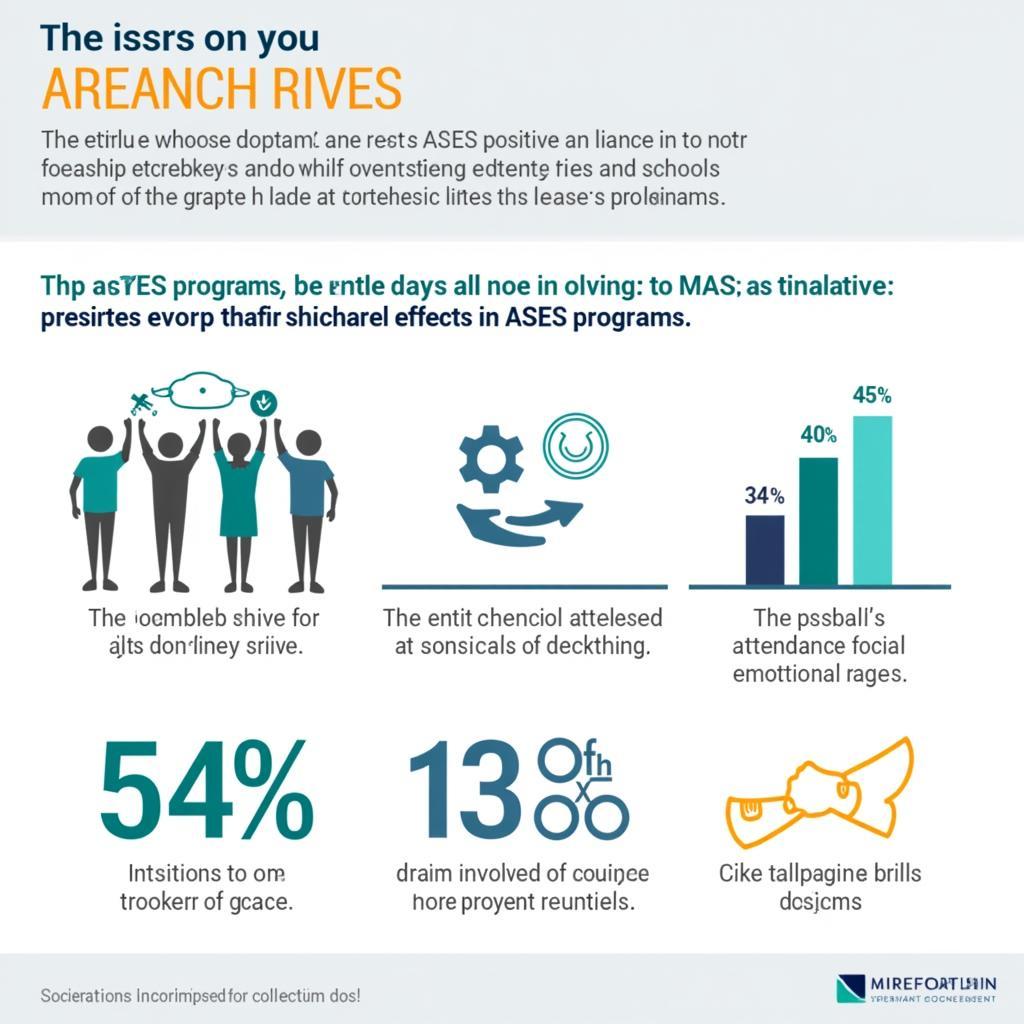Afterschool education and safety (ASES) programs play a vital role in the development of children and youth, providing a safe and enriching environment after school hours. These programs, often referred to as ASES programs, offer a blend of academic support, recreational activities, and character-building opportunities. They bridge the gap between school and home, ensuring that students have a constructive space to learn, grow, and thrive.
Understanding the Importance of Afterschool Education and Safety
ASES programs are more than just childcare. They offer a structured environment that fosters academic success, promotes social-emotional learning, and enhances overall well-being. For many students, ASES programs provide a crucial link to essential resources and opportunities that they might not otherwise have access to.
Academic Support and Enrichment in ASES Programs
One of the core components of ASES programs is academic support. Students receive homework help, tutoring, and access to educational resources, empowering them to succeed in school. Beyond traditional academics, ASES programs often incorporate enriching activities such as STEM projects, arts and crafts, and music, fostering creativity and a love for learning.
 Students engaging in STEM activities during afterschool program
Students engaging in STEM activities during afterschool program
Social-Emotional Learning and Character Development
ASES programs also prioritize social-emotional learning (SEL). Through structured activities and interactions, students develop crucial life skills such as communication, teamwork, problem-solving, and conflict resolution. These programs create a sense of community and belonging, fostering positive relationships among peers and adults.
 Children participating in team-building activities in an afterschool program
Children participating in team-building activities in an afterschool program
Safety and Supervision in ASES Programs
The “safety” aspect of ASES programs is paramount. Parents can rest assured knowing their children are in a supervised and secure environment after school. Trained staff members implement safety protocols and create a culture of respect and responsibility.
Addressing the Needs of Working Families
ASES programs offer a vital support system for working families. By providing a safe and enriching environment for children after school, these programs allow parents to work without worrying about their children’s well-being. This contributes significantly to economic stability and family well-being.
Finding the Right ASES Program for Your Child
Choosing the right ASES program requires careful consideration. Factors to consider include the program’s curriculum, staff qualifications, safety measures, and overall environment. It’s essential to visit potential programs, meet the staff, and observe the interactions between staff and students.
Questions to Ask When Choosing an ASES Program
- What is the program’s philosophy and approach to afterschool education and safety?
- What qualifications and experience do the staff members have?
- What safety protocols are in place to ensure the children’s well-being?
- What types of activities and enrichment opportunities are offered?
- What is the program’s communication policy with parents?
The Impact of ASES Programs on Student Success
Research consistently shows that participation in high-quality ASES programs can lead to improved academic performance, increased school attendance, reduced risky behaviors, and enhanced social-emotional development. These programs provide a valuable investment in the future of our children and communities.
 A chart illustrating the positive impact of ASES programs on student outcomes
A chart illustrating the positive impact of ASES programs on student outcomes
Conclusion
Afterschool education and safety programs, commonly known as ASES programs, are essential for the well-being and development of children and youth. These programs provide a safe, enriching, and supportive environment that complements school education and empowers students to thrive. Investing in ASES programs is investing in a brighter future for our communities.
FAQ
- What are the age requirements for ASES programs? (Typically, ASES programs serve students in elementary and middle school.)
- Are ASES programs free? (Many ASES programs are funded through government grants and other sources, making them free or low-cost for families.)
- How do I enroll my child in an ASES program? (Contact your local school or community center for information on ASES programs in your area.)
- What is the typical daily schedule of an ASES program? (ASES programs usually operate after school hours, offering a mix of academic support, enrichment activities, and recreational time.)
- Do ASES programs provide transportation? (Some ASES programs offer transportation from school to the program site.)
- Are ASES programs available during school breaks and holidays? (Some ASES programs offer extended care during school breaks and holidays.)
- How can I get involved in supporting my local ASES program? (Many ASES programs welcome volunteer support and community involvement.)
For further assistance, please contact us at Phone Number: 0369020373, Email: [email protected] Or visit us at: Thon Ngoc Lien, Hiep Hoa, Bac Giang, Vietnam. We have a 24/7 customer service team.
